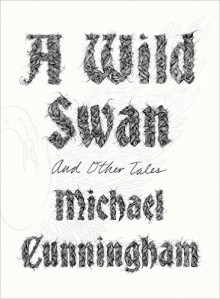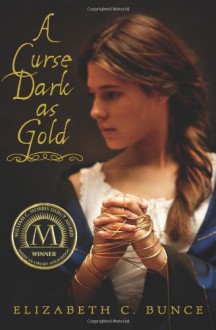 Over the weekend, I finished reading Rump: The True Story of Rumpelstiltskin by Liesl Shurtliff. It is a middle-grade retelling told from Rumpelstiltskin’s point of view, when he is just 12 years old. This book came out when I was working on later drafts of my own Rumpelstiltskin retelling, at a time when I was not allowing myself to read other retellings of the tale. Now that Rumpled has been out of my hands and out in the world for a couple years, I’m catching up on my Rumpelstiltskin retellings, as it has been one of my favorite fairy tales since my older sister first told it to me using Fischer Price Little People when I was four years old.
Over the weekend, I finished reading Rump: The True Story of Rumpelstiltskin by Liesl Shurtliff. It is a middle-grade retelling told from Rumpelstiltskin’s point of view, when he is just 12 years old. This book came out when I was working on later drafts of my own Rumpelstiltskin retelling, at a time when I was not allowing myself to read other retellings of the tale. Now that Rumpled has been out of my hands and out in the world for a couple years, I’m catching up on my Rumpelstiltskin retellings, as it has been one of my favorite fairy tales since my older sister first told it to me using Fischer Price Little People when I was four years old.
In the retellings that I have been reading, I’ve been noticing a common thread: Rumpelstiltskin, the creepy and evil little man whose plans to whisk away the queen’s baby are thwarted in the original, is painted in a sympathetic light. (Minor spoilers for a handful of Rumpelstiltskin retellings ahead.)

In Straw Into Gold by Gary Schmidt, in the little we see of Rumpelstiltskin, he is a kind father. In Rump, he is an adolescent boy who has bit off more than he can chew with a burgeoning magical gift he is just beginning to understand. In “Little Man” by Michael Cunningham, which is found in the collection A Wild Swan and Other Tales, he is a lonely magic maker who thinks a child might give his life meaning. And in A Curse as Dark as Gold by Elizabeth Bunce, his reasons for wanting a child are sympathetic even thought it is the only Rumpelstiltskin retelling I have read where he remains decidedly the villain.
Rump, “Little Man,” and my own retelling all tell the story from Rumpelstiltskin’s point of view, which is probably the most obvious vehicle for his redemption — after all, Crazy Ex Girlfriend aside, few of us think of ourselves as the villain of our own stories.
Still, we don’t see a plethora of retellings that redeem the Evil Stepmother from Cinderella, or the Wolf from Little Red Riding Hood. Although examples of both of these are certainly available, they don’t dominate the collective re-imagining of these key stories. So what is it about Rumpelstiltskin that makes us so badly want to redeem him?
 One of the aspects of the original tale that so intrigues me is its moral ambiguity. In many fairy tales, the roles of hero and villain are clear cut, as is the moral we are meant to take from them. Not so in Rumpelstiltskin. Although often regarded as the villain (it is evil to take someone else’s baby, after all), all Rumpelstiltskin wants is for the terms of the agreement he made with the miller’s daughter to be honored. Are we supposed to see the miller’s daughter as the hero of the story because she tries to get out of a bargain she made, for which the other party’s half has already been fulfilled? What kind of a woman promises away her firstborn child to begin with? Then again, what kind of man would demand such a thing? After all, the miller’s daughter is faced with the threat of death, and it is under this duress that Rumpelstiltskin makes his abhorrent demand.
One of the aspects of the original tale that so intrigues me is its moral ambiguity. In many fairy tales, the roles of hero and villain are clear cut, as is the moral we are meant to take from them. Not so in Rumpelstiltskin. Although often regarded as the villain (it is evil to take someone else’s baby, after all), all Rumpelstiltskin wants is for the terms of the agreement he made with the miller’s daughter to be honored. Are we supposed to see the miller’s daughter as the hero of the story because she tries to get out of a bargain she made, for which the other party’s half has already been fulfilled? What kind of a woman promises away her firstborn child to begin with? Then again, what kind of man would demand such a thing? After all, the miller’s daughter is faced with the threat of death, and it is under this duress that Rumpelstiltskin makes his abhorrent demand.
[My husband’s take on the original tale is that it’s about the ways all the men in the story exploit a vulnerable woman — first her father by making a false claim about her that opens her to the possibility of execution; then Rumpelstiltskin for making an unreasonable trade when she is not in a position to say no; and then the King who marries her only because he wants access to the gold he thinks she can produce. But that may be an analysis for another time.]
But then, despite Rumpelstiltskin’s demand, he still provides the queen with an escape clause: if she can guess his name within three days, she may keep the child. Is it pride that drives him to make this new bargain, or is it compassion for the queen’s plight? The original tale is silent all around on the matter of motives.
That is what makes this particular tale so rich for reimagining. And I think the bevy of stories that seek to redeem Rumpelstiltskin in some way are an attempt to inject some semblance of morality back into the tale. Not only that, but our sensibilities regarding those who are “ugly” or “disabled” have changed quite a bit since the Grimm brothers set down their original tales in 1812-1815. When I was writing my retelling, I couldn’t help but wonder whether it was so easy to cast Rumpelstiltskin as the villain because he was ugly, and the miller’s daughter as the hero because she was beautiful. One of the themes that I ended up playing with was the way that we assign morality and other character traits based on appearance. It is easier and more convenient to make the ugly character the evil one and the beautiful one the good, even though, in this story, they both try to cheat each other.
Our culture is still influenced far too strongly by appearance; the connection between beauty and goodness is very much alive and well. But now there are many voices that are questioning the validity of that connection, cultural critiques that add a counterpoint to the onslaught of images that still tell us that to be lovely is to be good.
Rumpelstiltskin is but one vehicle for challenging this unhealthy assumption, and it is being put to uses today that the Grimms probably never imagined for it centuries ago. It may be coming to mean something different, but it nevertheless remains relevant and alive. And that may be the best “happily ever afters” any tale can hope for.


 Log in with Facebook
Log in with Facebook 












